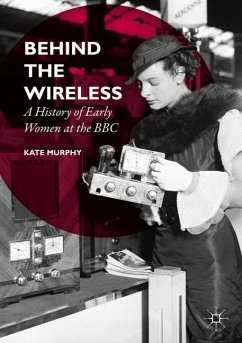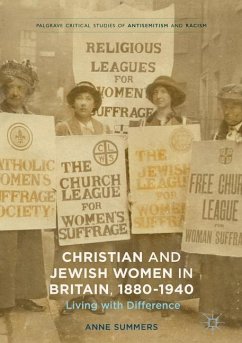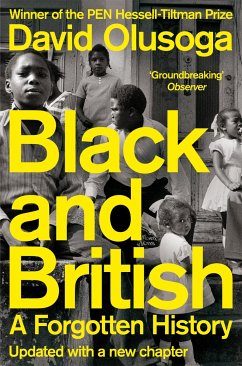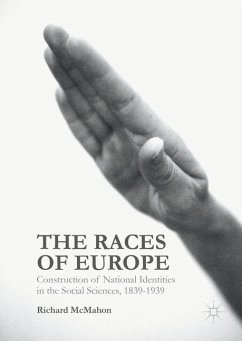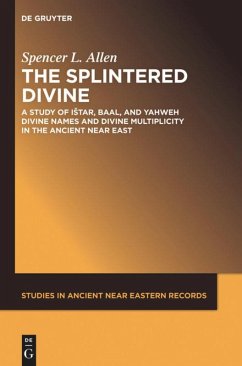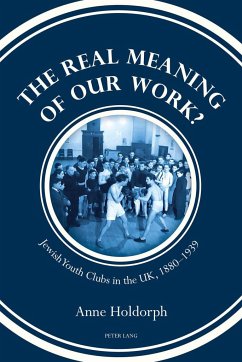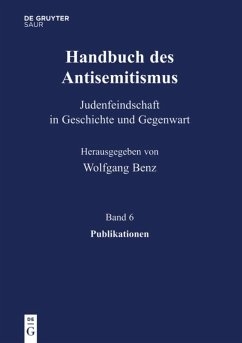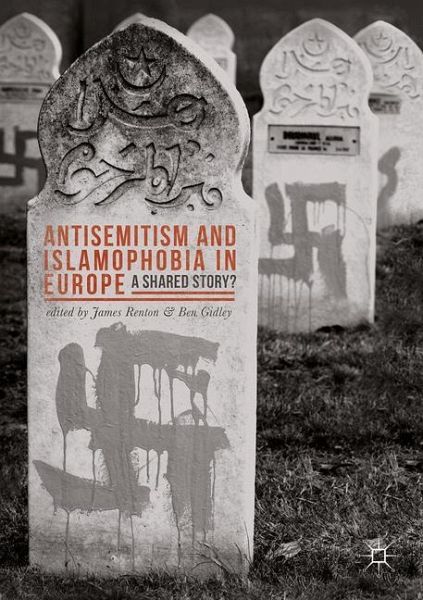
Antisemitism and Islamophobia in Europe
A Shared Story?
Herausgegeben: Gidley, Ben; Renton, James
Versandkostenfrei!
Versandfertig in 6-10 Tagen
22,99 €
inkl. MwSt.

PAYBACK Punkte
11 °P sammeln!
This is the first book to examine the relationship between European antisemitism and Islamophobia from the Crusades until the twenty-first century in the principal flashpoints of the two racisms. With case studies ranging from the Balkans to the UK, the contributors take the debate away from politicised polemics about whether or not Muslims are the new Jews. Much previous scholarship and public discussion has focused on comparing European ideas about Jews and Judaism in the past with contemporary attitudes towards Muslims and Islam. This volume rejects this approach. Instead, it interrogates h...
This is the first book to examine the relationship between European antisemitism and Islamophobia from the Crusades until the twenty-first century in the principal flashpoints of the two racisms. With case studies ranging from the Balkans to the UK, the contributors take the debate away from politicised polemics about whether or not Muslims are the new Jews. Much previous scholarship and public discussion has focused on comparing European ideas about Jews and Judaism in the past with contemporary attitudes towards Muslims and Islam. This volume rejects this approach. Instead, it interrogates how the dynamic relationship between antisemitism and Islamophobia has evolved over time and space. The result is the uncovering of a previously unknown story in which European ideas about Jews and Muslims were indeed connected, but were also ripped apart. Religion, empire, nation-building, and war, all played their part in the complex evolution of this relationship. As well asa study of prejudice, this book also opens up a new area of inquiry: how Muslims, Jews, and others have responded to these historically connected racisms.
The volume brings together leading scholars in the emerging field of antisemitism-Islamophobia studies who work in a diverse range of disciplines: anthropology, history, sociology, critical theory, and literature. Together, they help us to understand a Europe in which Jews and Arabs were once called Semites, and today are widely thought to be on two different sides of the War on Terror.
The volume brings together leading scholars in the emerging field of antisemitism-Islamophobia studies who work in a diverse range of disciplines: anthropology, history, sociology, critical theory, and literature. Together, they help us to understand a Europe in which Jews and Arabs were once called Semites, and today are widely thought to be on two different sides of the War on Terror.



